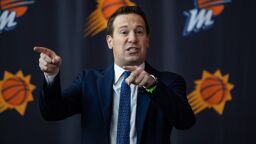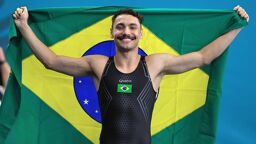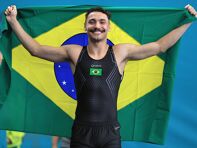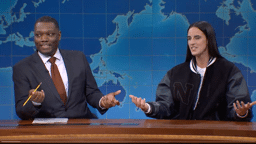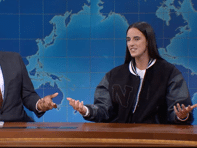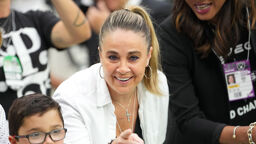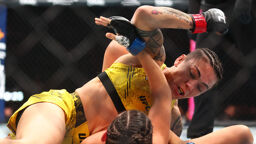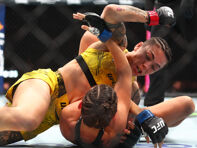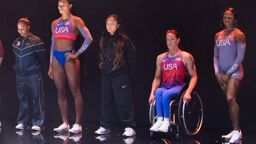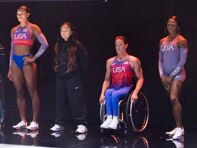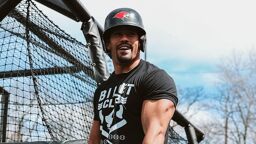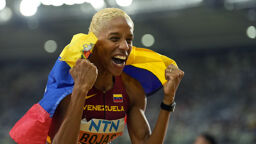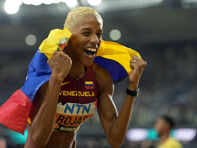There are a bunch of articles pouring out now about how the LGBT movement failed in Sochi, but not many people are talking why we failed. The answer is simple: We didn't risk anything.
Before I get into it, there's a super important element that has to be said: Everyone engaged wanted to do the right the thing. They wanted to help. I was involved in many discussions about what to do and how to do it, and I always got the feeling that people were doing this for the right reason: To help LGBT Russians. All of us had our hearts in the right place — Our plan was simply existentially flawed.
There were two problems inherent in the build-up to the Olympics and during the Games themselves that kept our movement's potential impact limited: 1) There was not one united effort, and 2) No one wanted to risk a thing.
The first part is actually important. Every organization and individual seemed to have the need to "own" its own thing. If that wasn't the case, there would have been one unifying effort — There wasn't because, at some level, no one wanted there to be one that they didn't own at some level.
Even with that it's the second piece — the lack of risk — that's at the core of why we failed. Take a look at the various efforts around the Olympics.
There were some useless "boycott" campaigns aimed at Olympic sponsors and the Olympics themselves. But all of these efforts were aimed at punishing the Russians and companies that wouldn't stand up and issue fruitless proclamations about how horrible the Russian government is. Even my call to ban Russia from its own Games was of this ilk. How does boycotting Visa and Coca-Cola, or pouring vodka into the street, advance LGBT rights in Russia? They don't. The whole "boycott" push was never going to have an effect.
Then there were the awareness campaigns aimed at making people aware of the LGBT issues in Russia they needed to be aware of. But awareness without action is fruitless; Action without risk bears no reward. Wearing clothing, changing social-media avatars, writing columns for online magazines, holding concerts — again, none of this was ever going to have any real effect.
These efforts were more aimed at making us feel good about ourselves than actually affecting change. There's a scene from Milk when Harvey organizes angry protesters into a march to channel the anger. Those marches didn't do anything, but they were still an important part of the beginning of the movement. The efforts around Sochi were much the same: They didn't change anything, but they did help channel energy that could potentially be used effectively in the future. It will be up to us to make sure that energy gets channeled more effectively in the months and years ahead.
There have been other positives to come out of our efforts. The Russia Freedom Fund, the Principle 6 campaign and others have raised money for LGBT-rights groups in Russia. Those funds will help mount key legal challenges in Russia. That helps. Away from Moscow, the IOC is also now on notice about the role of discrimination in the Olympics. There are some strides to be made here, and the constant push to infuse anti-discrimination policy into the Games will eventually bear some fruit.
Yet as the Olympics fade into the past, most of us can't help but think… We missed an opportunity.
None of us talked about what we would risk to make change. We didn't hop on a plane and demonstrate in Red Square. Athletes did not make any grand gesture on the podium or in the streets that put them at risk of action by the IOC. Instead, we sat in our offices and in our living rooms and wagged our fingers when LGBT Russians and their supporters were arrested for holding up a sign about the IOC Charter's Principle 6. They were arrested. We just watched.
Part of the problem was certainly the location of Russia. Getting visas, pulling together resources to get there — This is all very complicated and risk of action was high. Hudson Taylor, among a handful of others, did go to Sochi and was there to offer support while heeding the caution of many people — including myself — to not get himself arrested. To be sure, exactly what to do and what to risk were not easy questions to answer. I didn't have the answer myself, which is why I found it so hard to engage. Yet to make real change, we will have to answer these questions.
In truth, every social-justice movement starts this way. The LGBT sports movement was for years largely relegated to panel discussions and occasional op-eds. Once activists engaged pro-sport leagues, the NCAA and high school and college coaches and administrators, creating action plans and — the greatest action any LGBT person can take — coming out to teammates and the public, movement happened fast. Until Rosa Parks sat in the wrong seat, the Civil Rights movement was mostly talk.
For many, this was the first foray into international LGBT waters, as Masha Gessen said in Slate. There were some good things to come of it, but we ultimately failed the LGBT Russian movement. We need to take a step back, analyze why we failed, and remember the core element of all social-justice movements: Action and risk make change, and without both of them we are just spinning our wheels. There's no getting around it.
See also: Gawker: The Olympics failed gays, and gays failed the Olympics







